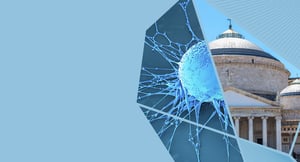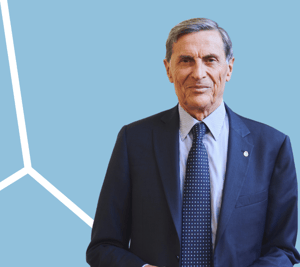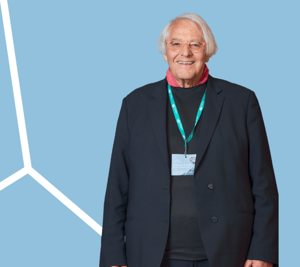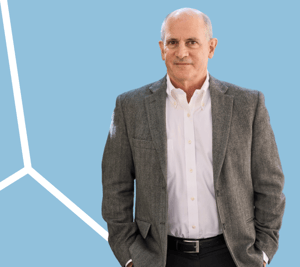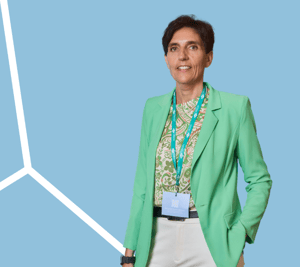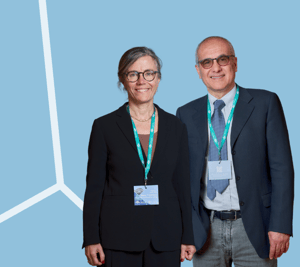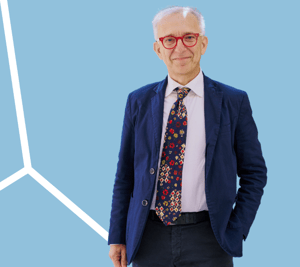The scientific Forum titled "New Frontiers in Cancer and Healthy Aging," organized by IBSA Foundation for scientific research in collaboration with Università degli studi di Napoli Federico II was held on April 18th 2024 - Church of the Complesso dei SS. Marcellino e Festo.











As aging is an inevitable process, understanding how we can age "healthily" becomes paramount. The Forum aimed to address the intricate connections between aging and cancer, shedding light on the mechanisms that contribute to its development.
We had insightful exploration, where expert speakers summarized current knowledge and evaluated the impact of immunology, inflammation, and the microbiome on the treatment and clinical aspects of cancer.
Coffee Break and Lunch was offered to all participants.
Aging is a natural process involving a series of physiological and cellular changes in the human body. While aging is inevitable, it is important to understand how we can age "healthily" and what are the main risk factors that can lead to pathological aging and cancer development.
Aging, in fact, is a significant risk factor for the development of cancer. This phenomenon is due to several factors, including accumulation of genetic mutations, deterioration of the immune system, and cumulative exposure to risk factors.
In fact, cancer and aging are associated with multiple biological changes that are in part closely linked, and older patients have higher cancer rates than younger patients. In this context, a patient's "biological" age becomes more crucial than "chronological" age, although adequate techniques to estimate it are lacking.
Immunosenescence is one of the most damaging consequences associated with aging and is probably the main cause of age-related diseases such as cancer. A functional immune system plays a key role in preventing tumor growth. As aging progresses, however, there is a gradual decline in immune function that can lead to an inadequate immune response against developing cancers due to the accumulation of genetic stress. The composition of the microbiome and its impact on various aspects of health, such as cancer risk, is a pertinent component of healthy living. Because both microbes and cancer cells depend on host resources for survival and replication, an excess of energy and nutrients may contribute to the onset and progression of cancer.
In this forum, we summarized current knowledge on the mechanistic connections between aging and cancer and evaluate the influence of immunology, inflammation, and the microbiome on the treatment and clinical impact of cancer.
This Forum, organized by IBSA Foundation for scientific research in collaboration with the University of Naples Federico II, underscores the importance of interdisciplinary collaboration among healthcare professionals, scholars and experts from various fields to establish aging and cancer medicine as a robust clinical and scientific field at the forefront of "personalized medicine," capable of generating significant public health impact.
Programme
- 09:00 AM Institutional Greetings
- 09:30 AM Innate immunity and inflammation as a metanarrative of medicine
Prof. Alberto Mantovani - 10:00 AM Inflammaging as the common ground of age-related diseases: the latest developments using artificial intelligence
Prof. Claudio Franceschi - 10:30 AM Exercise and stem cell aging: The role of inflammation and myokines in cellular rejuvenation
Prof. Thomas Rando - 11:00 AM Coffee Break
- 11:30 AM The microbiota and the leaky gut during aging
Prof. Maria Rescigno - 12:00 AM Is metastasis a Darwinian process?
Prof. Pier Paolo Di Fiore - 12:30 AM Genetic mutation model: unveiling the pathogenetic mechanisms of thyroid carcinoma
Prof. Giorgio Stassi - 1:00 PM Q&A e conclusions
- 1:15 PM Lunch & Networking
Scientific Committee
Silvia Misiti – Director of IBSA Foundation for scientific research (Switzerland)
Domenico Salvatore – MD. PhD. Professor of Endocrinology, Dipartimento di Sanità Pubblica Università degli Studi di Napoli "Federico II" (Italy)
Moderators
Gabriella Minchiotti – Research Director, CNR-IGB Institute of Genetics and Biophysics "A. Buzzati-Traverso" (Italy)
Domenico Salvatore – MD. PhD. Professor of Endocrinology, Dipartimento di Sanità Pubblica Università degli Studi di Napoli "Federico II" (Italy) and member of Scientific Board of IBSA Foundation for scientific research (Switzerland)
Andrea Alimonti – Professor of Experimental Oncology at ETH Zürich and at Università della Svizzera Italiana, ERC Investigator, EMBO YIP, Head Molecular Oncology Institute of Oncology Research and member of Scientific Board of IBSA Foundation for scientific research (Switzerland)
Antonio Musarò – Full Professor of Histology, Embryology and Biotechnology, Neuromuscular Research Group, Tissue Engineering Unit at the Sapienza University of Rome (Italy) and member of Scientific Board of IBSA Foundation for scientific research (Switzerland)
Speakers

Alberto Mantovani
IRCCS Istituto Clinico Humanitas, Humanitas University, Milan, Italy
Title: Innate immunity and inflammation as a metanarrative of medicine
Abstract: The innate immune system includes a cellular and a humoral arm and underlies inflammation in its diverse forms. Single cell analysis and spatial transcriptomics have provided new vistas on the complexity and function. Moreover, myeloid cells are a source of fluid phase pattern recognition molecules (ante-antibodies) and, in turn, humoral innate immunity shapes recruitment and function of these cells. Myeloid cells represent tools and targets for innovative therapeutic approaches, complementing current strategies. Immunity and inflammation are a component of diverse diseases, ranging from cancer to neurodegeneration. Thus immunity and inflammation represent a metanarrative of Medicine.
For his research activity he has received several national and international awards, such as the Triennial OECI Award from the Organization of the European Cancer Institutes, the Robert Koch Award for his contribution to tumor immunology and immunotherapy, the American-Italian Cancer Foundation (AICF) Prize for Excellence in Medicine, the American Association for Cancer Research International Pezcoller Award for Extraordinary Achievement in Cancer Research and, most recently, the CIMT Lifetime Achievement Award. The broad impact of his contributions is testified by citations. As of November 2023 he has over 166,000 citations and an H-index of 185 (Scopus).
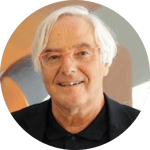
Claudio Franceschi
Prof Emeritus, University of Bologna, Italy and Lobachevsky State University, Nizhny Novgorod, Russia
Title: Inflammaging as the common ground of age-related diseases: the latest developments using artificial intelligence
Abstract: Inflammaging is a general theory of aging and age-related diseases proposed in 2000 which has received a number of citations. Artificial Intelligence (AI) is widely used in aging research and eXplainable Artificial Intelligence (XAI) is a rapidly progressing field of machine learning that allows explaining the predictions of complex models. XAI is especially required in sensitive applications, e.g., in health care, when diagnosis, recommendations and treatment choices might rely on the decisions made by artificial intelligence systems. The benefits of applying XAI to aging and Inflammaging, as well as to the development of personalized "aging clocks", will be illustrated.
Partner/WP leader of several EU projects: PROTEOMAGE; RISTOMED; MARK-AGE; MYOAGE; IDEAL; COBRA; MISSION-T2D; HUMAN; MYNEWGUT. INTERNATIONAL AWARDS: August 2008: Laurea Honoris causa in Medicine, Universidad Nacional de Córdoba (Argentina); March 2012: Annual Hayflick Lecturer 2012, University of Alabama at Birmingham's Center for Aging; June 2012: The Oxygen Club of California Award: Aging Research Award; April 2015 IAGG-ER Award of the International Association of Gerontology and Geriatrics of the European Region; September 2017: Schober Prize, Martin Luther University, Halle, Germany; October 2017: Nencki Prize, Polish Academy of Sciences, Nencki Institute, Warsaw, Poland; March 2018: Laurea honoris causa, Université Bordeaux, France; May 2023: Lifetime Achievement Award in Immunology and Aging Research, Montreal, Canada.
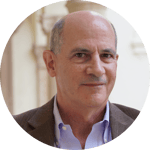
Thomas Rando
Director of the Broad Stem Cell Research Center, Professor of Neurology and of Molecular, Cell, and Developmental Biology at UCLA and Professor at Stanford University, USA
Title: Exercise and stem cell aging: The role of inflammation and myokines in cellular rejuvenation
Abstract: With age, there is a gradual decline of stem cell functionality in tissues throughout the body. We and others have reported that exercise can restore youthful functions to aged stem cells. Given the well-known benefits of physical activity to promote healthy aging, we tested the effects of exercise on age-related changes in the stem cells and stem cell niches of muscle, brain, and blood. Using single cell RNA sequencing, we have found that there is significant increase in both inflammatory signaling and changes in the resident immune cells in all of the stem cell niches. We are currently examining the factors (myokines) that are induced in muscle in response to exercise and secreted into the blood to promote the systemic beneficial effects of physical activity on aged cells and tissues.
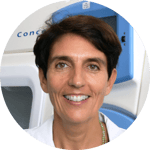
Maria Rescigno
Full Professor at Humanitas University and Group Leader at Humanitas - Vice scientific Director Humanitas, Milan, Italy
Title: The microbiota and the leaky gut during aging
Abstract: The ‘leaky gut’ is a condition associated with several disorders, including the metabolic syndrome, steatohepatitis, and neurodegenerative disorders. Aging is often associated with a leaky gut, particularly in patients with Alzheimer’s and Parkinson’s disease. Changes in microbiota composition can lead to the development of a leaky gut and to the translocation of bacteria or their constituents into the systemic circulation. The consequences are a generalized state of inflammation which can affect brain permeability.
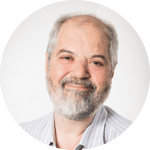
Pier Paolo Di Fiore
MD PhD, Full Professor of General Pathology and Physiopathology, University of Milan and Director, Novel Diagnostics Program, European Institute of Oncology, Milan, Italy.
Title: Is metastasis a Darwinian process?
Abstract: The traditional view of metastasis is that of a selected phenotype, due to genetic variations that confer a migratory/invasive advantage to a subpopulation of cancer cells. While from a pure evolutionary viewpoint this is a controversial statement (what would be the hypothetical advantage of migrating away from the primary tumor? How can the cell compute a “future” hypothetical advantage), it has represented the basic tenet in the field. Recent advances not only argue against the genetic basis of metastasis, but question whether it represents a selected advantage for the cancer cell. I will argue that, in keeping with Gould’s definition, metastases are a spandrel, i.e., an obligatory consequence of a different advantage-conferring phenotype.
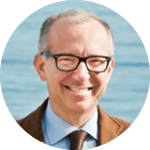
Giorgio Stassi
Full Professor in Medical Laboratory Science and Technology, University of Palermo, Italy
Title: Genetic mutation model: unveiling the pathogenetic mechanisms of thyroid carcinoma.
Abstract: Thyroid carcinoma (TC) is the most common malignancy of endocrine organs. We create follicular cell-derived TCs of all the different histotypes based on specific genomic alterations delivered by CRISPR-Cas9 in human embryonic stem cells (hESC)-derived TPCs. Specifically, TPCs harboring BRAFV600E or NRASQ61R mutations generate papillary or follicular TC, respectively, whereas addition of TP53R248Q generate undifferentiated TCs. Of note, TCs arise by engineering TPCs, whereas mature thyrocytes have a very limited tumorigenic capacity. The same mutations result in teratocarcinomas when delivered in early differentiating hESCs. Tissue Inhibitor of Metalloproteinase 1 (TIMP1)/Matrix metallopeptidase 9 (MMP9)/Cluster of differentiation 44 (CD44) ternary complex, in cooperation with Kisspeptin receptor (KISS1R), is involved in TC initiation and progression. Increasing radioiodine uptake, KISS1R and TIMP1 targeting may represent a therapeutic adjuvant option for undifferentiated TCs.
Interviews
Full video
